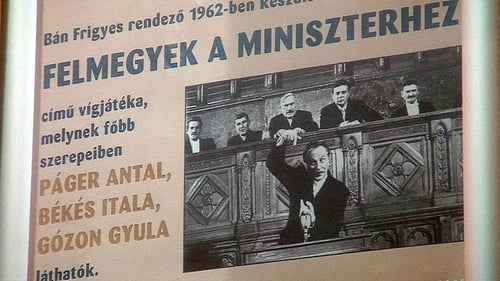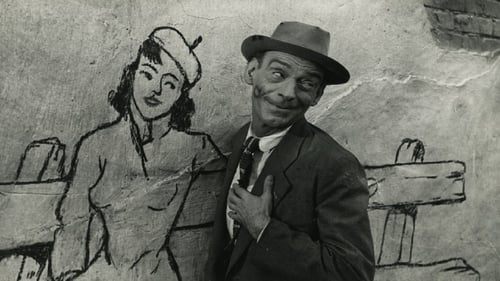
Karcsi's Father
A love story between a young, policeman and a Chinese immigrant girl, who speak no common language.

Cart Driver
Ben Kline is an American television star and a bankable name, who is cast to portray the Hungarian writer Miklos Radnoti, whose journal of poems was found with his body, buried in one of Hungary’s mass graves. Kline is also the son of a Holocaust survivor and has long resented his father’s refusal to speak about the War. Now given the opportunity to play the role of a hero, but faced with the reality of a victim, the boundaries between truth and illusion begin to blur.

Ügyvéd
The story of a childless Jewish couple in WWII-era Hungary who adopt a Hungarian boy and raise him with their values and traditions.

In 1950, when a young communist director arrives to take charge of a stud farm, his efforts to draw on the experience of the old hands there meet with little success. Indeed, so outraged are they at the changeover to communism that they harass him at every turn, especially after he treats a local barmaid as if she were a whore of some kind. After administering a beating to him, the old hands are nonetheless incensed when he calls on the police. The director doesn't get enough help, however, because the stable hands stab him before running off for the border.

Õrnagy
A brothel in a small Hungarian town becomes the home of a medical student after his favorite working girls find out he's out of rent money. Trouble brews as they learn his mother is coming for a visit and they must transform the house.

Borda Sándor
This Hungarian film chronicles the slow deterioration in the life of Juli, a farmer's wife. As the countryside grows ever more deserted because people are moving to towns or large collective farms, she spends more and more time alone. Despite her best efforts to appreciate her situation, her despair grows. The loneliness is briefly interrupted when she and her husband take in an old woman and care for her, but the woman dies. Shortly after her son visits, she is killed in an accident which may have been a suicide. ~ Clarke Fountain, Rovi

Prison guard
Luca regularly visits her bedridden mother-in-law. Luca's husband, János, has been arrested on a trumped up political charge, and Luca does not know if he is still alive. Luca hides this from his mother by making up letters purporting to be from János who is directing a big film in New York. Luca discovers that János is alive, and is dismissed from her teaching job because of her husband. The dying mother anxiously awaits the return of her son from New York.

Büky legénye
Andras Kovacs' film, considered one of the most important Hungarian films of the 1960s, centers around four men who await trial for their involvement in the massacre of several thousand Jewish and Serbian people of Novi Sad in 1942. Each denies any responsibility, claiming that they were only following orders. The film is significant for its willingness to address the subject of Hungary's role in WWII, which was taboo at the time of the its release.

Postás
Nelli, the icy, introverted farm girl, needs to find a husband following her father's death. She accepts the attentions of the noisy Takaró Sanyi, although she is more attracted to his silent and modest younger brother.

A comedy about the organisation of agricultural co-operatives. In the village of "Rendes", everybody has already entered the co-op, only the stubborn farmer, Bódog Balogh continues to resist. The leadership plays all their tricks and uses all their efforts, but all in vain.

Rendõr
Bene, tired of the professional battles of engineers and trying to escape a ship-wrecked marriage, asks to be transferred to the country. The gravest problem of the sandy region in Nagyalföld (Great Hungarian Plain) is the shortage of water. The tireless director of the local state farm asks for Bene's support, but the disillusioned man refuses him.

October, 1956. Colonel lieutenant Szabó sends a platoon with the mission of calming the people demonstrating in the town. The platoon is lined up under the command of Lieutenant Csendes and the soldiers aim at the demonstrators. Szusza Kis changes sides, and Csendes is unable to shoot at his childhood mate. They withdraw.

The poetic love story depicting everyday life from a micro-psychological aspect takes place in the 1910s. Sándor, editor of the local paper, serves as a foot soldier on Sundays, but spends weekdays playing billiard and courting women. One Sunday afternoon - in soldier's uniform - he meets Vilma, the beautiful maid, whose honesty and chastity turns the adventure to love.

On the Spring of 1945 the Jackson circus is heading towards the border with the clown Peti and Aida, the elephant. They have to play for the Hungarian Fascists, while Peti is hiding the Jew Annuska and Sanyika.

Venice Film Festival 1954












